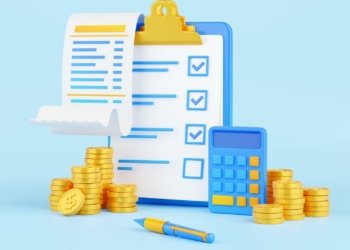It is pivotal for all small business owners to devote some time and effort to bookkeeping and accounting every day. It is crucial to focus on getting your accounting back-office organized. You need to file all your monthly expenses, organize your vital tax papers, and keep track of all your bills. According to experts at Forbes, bookkeeping is the method of meticulously tracking all the expenses and income related to your small business. It is an effective way of knowing how your business is performing in terms of cash flow and how it is faring overall. It is critical to stay updated with your bookkeeping so that you do not have to face unanticipated insights into expenses and account balances. Cash flows or problems related to them are vital to the success or failure of your small business. As per statistics, 82 percent of small businesses in the United States shut down because of cash flow problems. Let us discuss some of the small business bookkeeping and accounting best practices.

Focus on Automating Manual Processes
It is a good idea to automate all routine bookkeeping and accounting processes. Numerous bookkeeping and accounting tasks are often repeated like:
- Keeping track of all invoices, you send to your clients
- Filing all utility bills in one single centralized database
- Calculating all mileage payments accurately for staff reimbursements
- Ensuring all late invoices are followed up
- Paying employee salaries every month
Now you can perform vital accounting tasks by utilizing a unified and cutting-edge accounting project management system or software for tracking expenses, generating custom-tailored reports, and sending automated invoices.
Categorizing Expenses Is the Way to Go
The success or failure of your business depends on the way you track your business expenses. No entrepreneur is interested in paying unnecessary taxes. It is vital for you to keep a meticulous record of your business expenses for receiving tax deductions and write-offs, wherever applicable. It is crucial to begin the process by recording all expenses. You may then consider classifying them into relevant categories like vendors, bill payments, administration, and miscellaneous. You may seek professional assistance from Hogan CPA small business accounting experts.
Be Vigilant about the Credit
One of the top reasons for a business to shut down is the failure to make timely payments. An insolvent business may demonstrate a few common signs such as lack of funds, poor credit score, facing trouble in catering to its working capital requirements. When organizations rely on bank finance to run their business on a daily basis, they will have a tough time repaying the high-interest debt.
Maintain Separate Personal & Business Bank Accounts
It is highly inconvenient for an owner of a small business to go through his personal account to examine every single business transaction. If you are well-organized with your finances, your business’s financial health will benefit tremendously. You must necessarily keep your expenses and earnings relating to the business separate from all your personal expenses.
Invoicing with Accuracy
Invoicing is an integral part of an organization. Invoicing is a critical process that is challenging and time-consuming. However, it is pivotal to invoice accurately because even the slightest of errors will adversely impact your earnings. Invoices should contain all relevant information and details regarding the transaction.
Conclusion
Small business owners should follow the above-discussed bookkeeping and accounting best practices to sustain and succeed in this fiercely competitive environment.




















